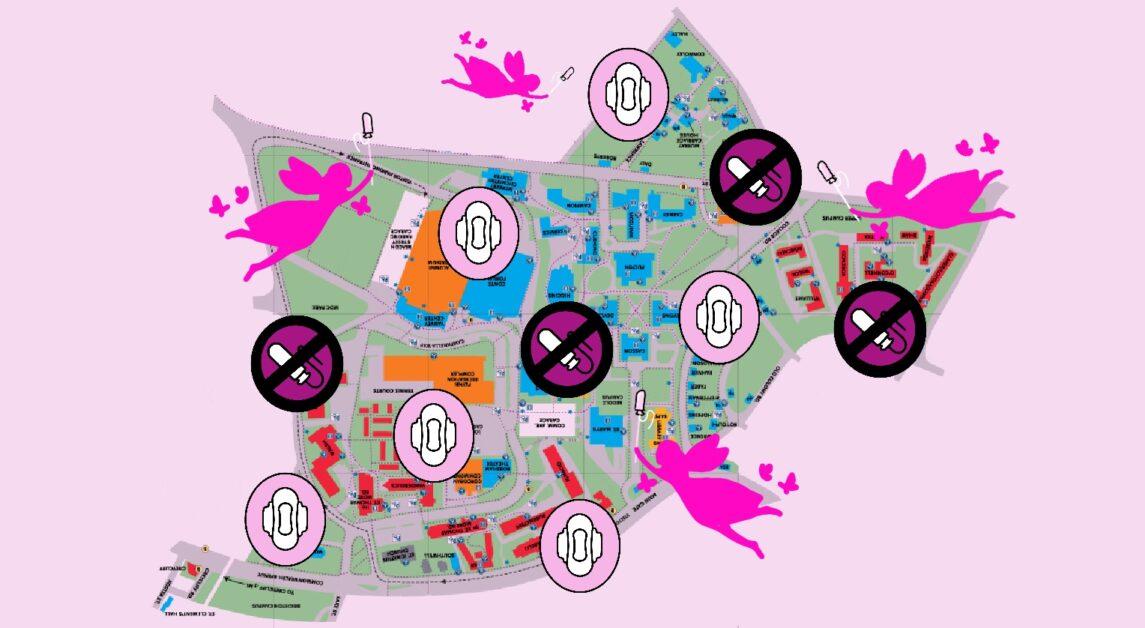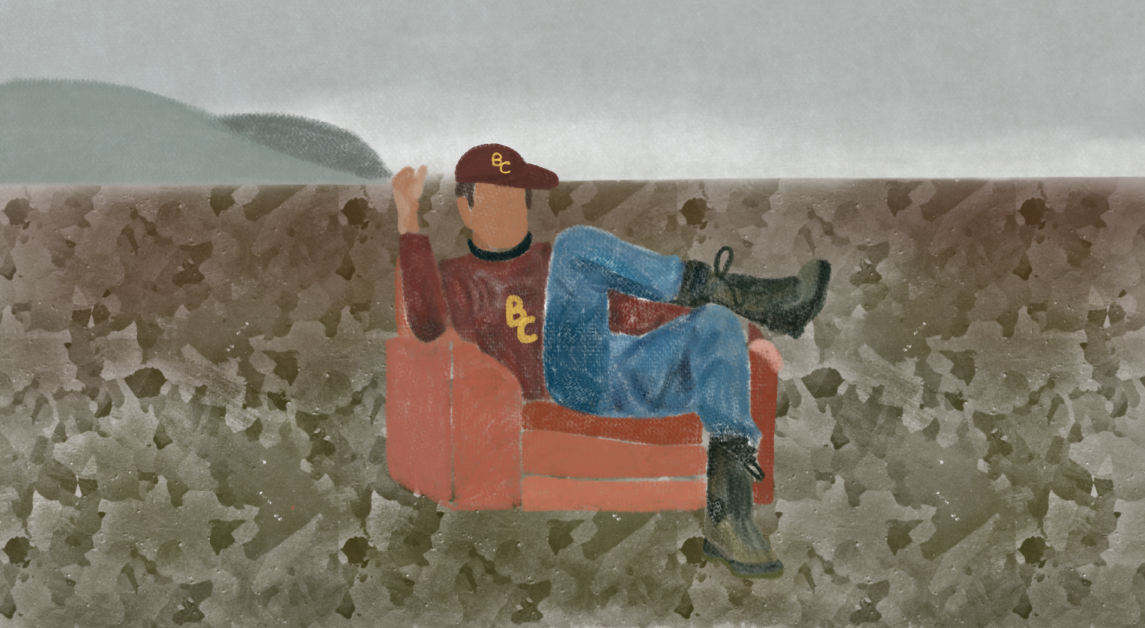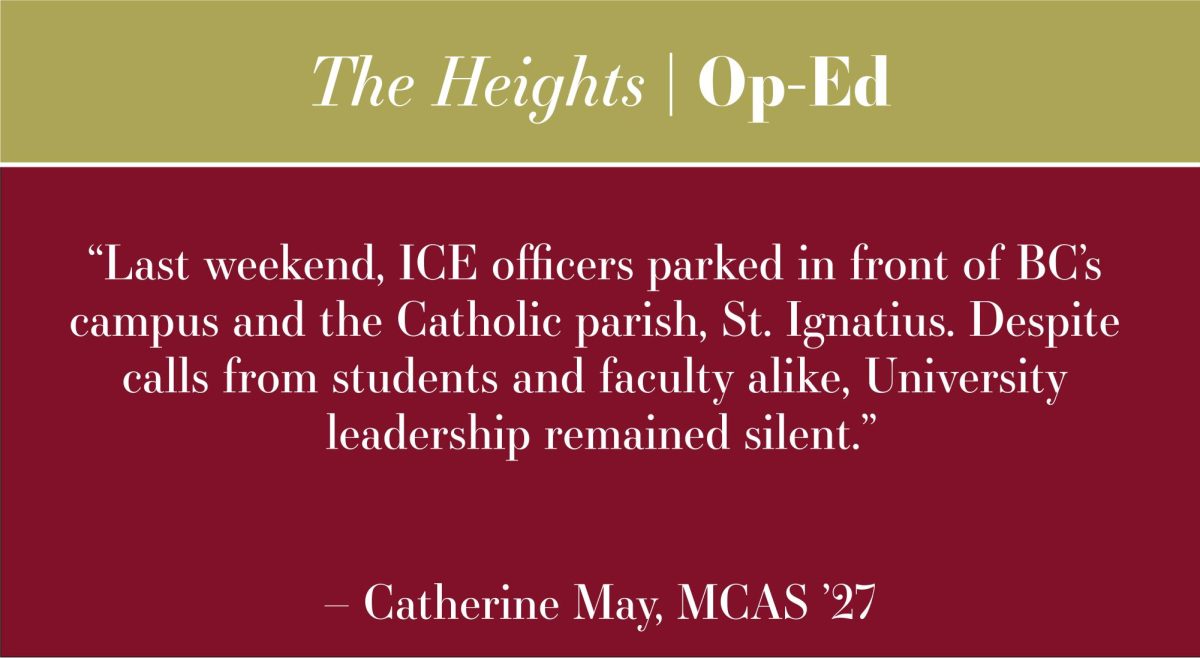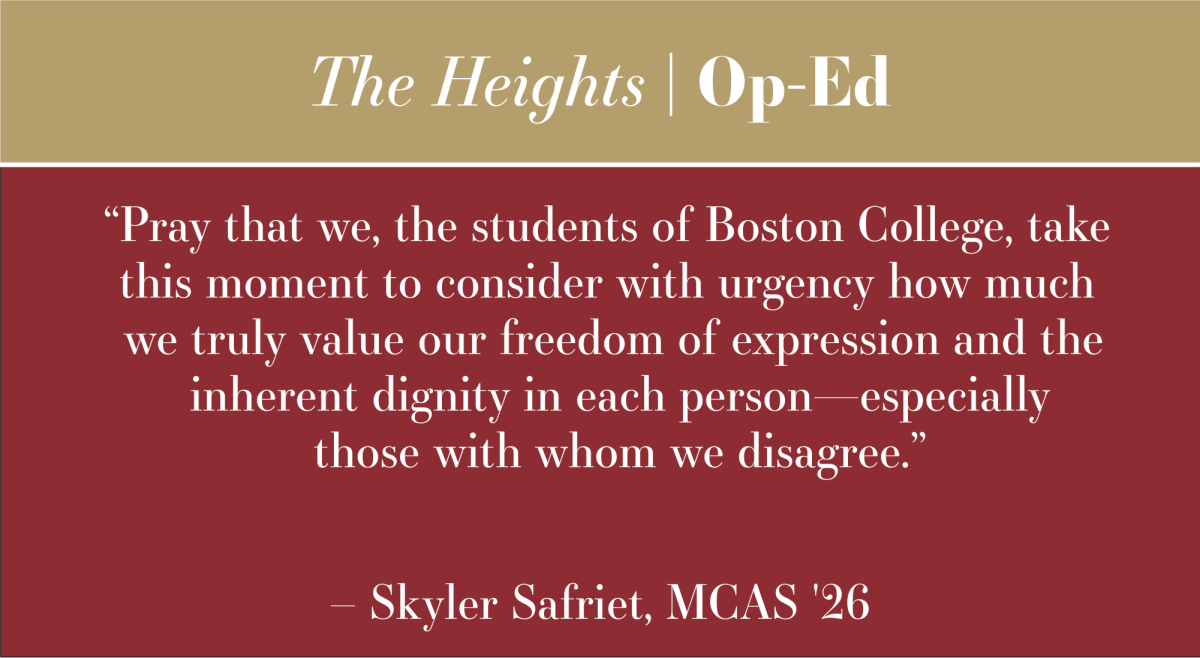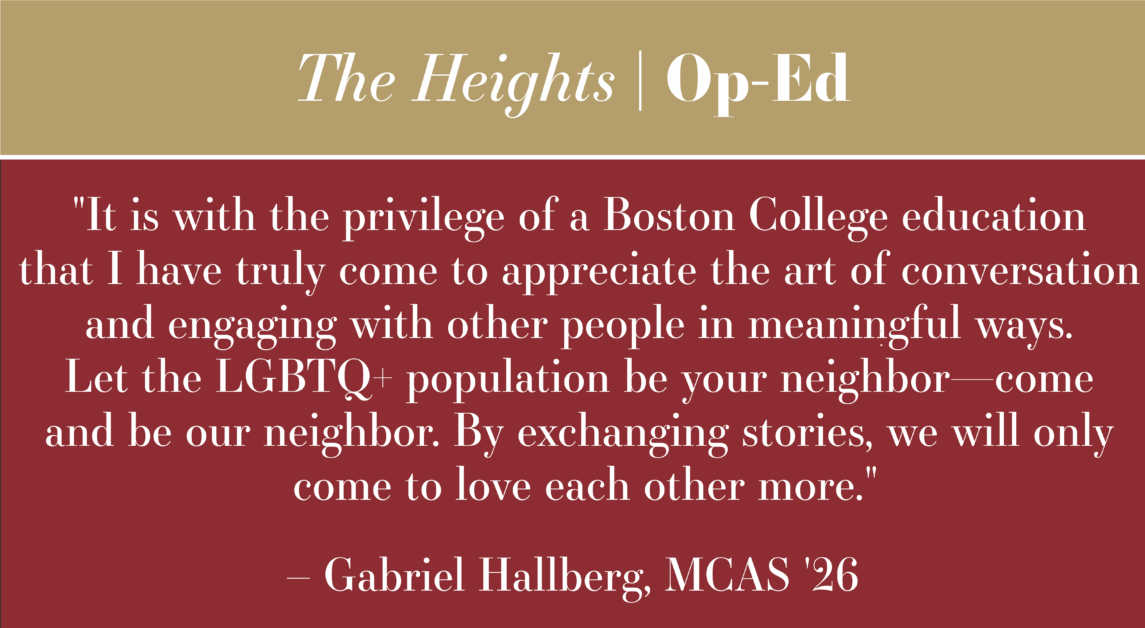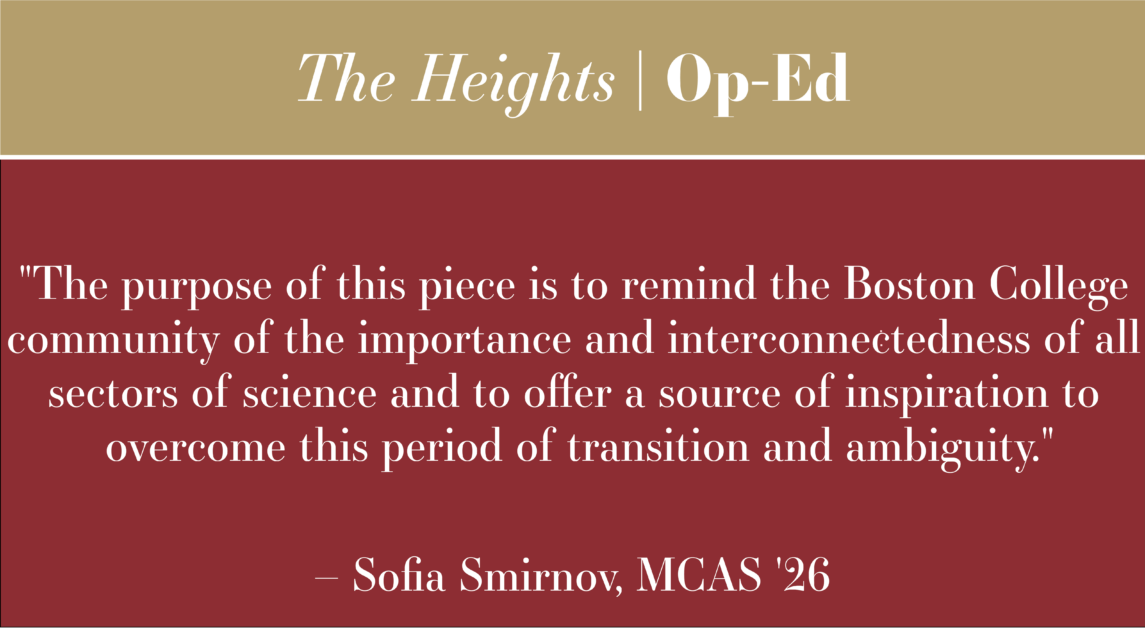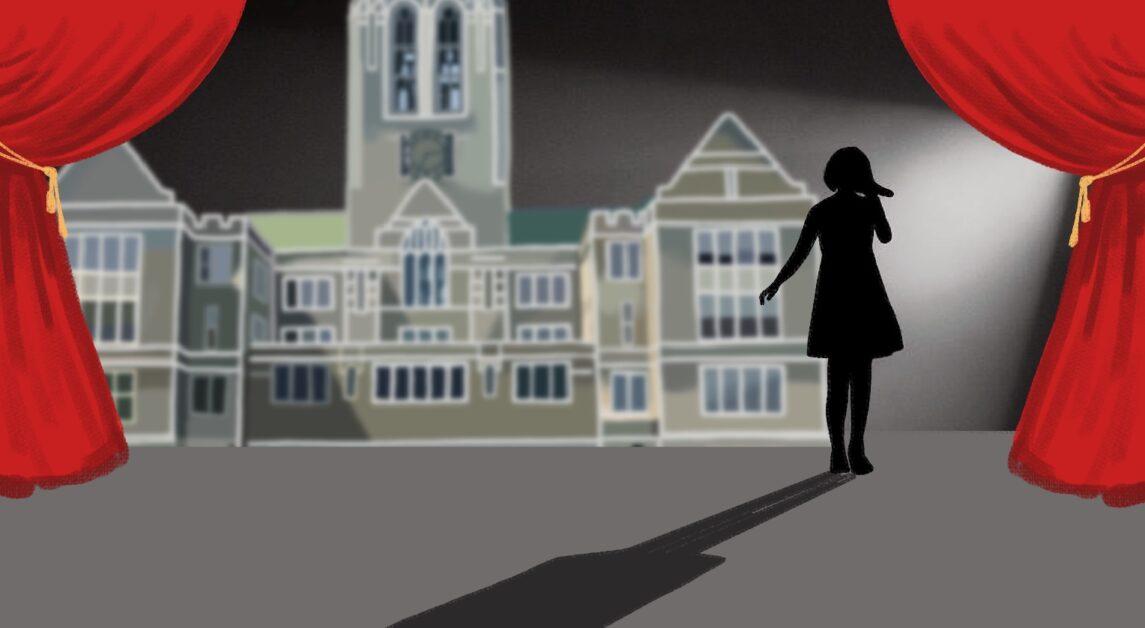Boston College’s acceptance rate last year was the lowest it has ever been. For every 100 applications only 27 students were accepted. Of those 27 students, about 15 were women. As many of you already know, getting into BC isn’t easy. Your resume has to be practically immaculate.
Just like many of yours, my transcript was adorned with straight As and a perfect GPA—not to mention a vast number of extracurriculars. My standardized test scores were far from standard and my work ethic was surely a strong suit. I was ultimately a thoroughbred, like everyone else that goes here. When I decided to come to BC, it was to expand my mindset and learn all that I could. I certainly didn’t choose BC to get my M.R.S. degree.
About one month into my freshman year, I was in class and talking to a friend who said she was at BC to get her M.R.S degree. I never heard this term before and thought she was on the pre-med track. I asked if it was hard being pre-med and she laughed in my face. Confused, I asked what a M.R.S degree was and she explained: An M.R.S. degree is going to college with the goal of finding a husband rather than getting an education.
It’s funny how oblivious you are to something when you’re unfamiliar with it. After that day, I heard the term far too often. It was everywhere—From students and friends saying, “I can’t wait to have kids,” “I don’t need to learn this to be a mom,” “I just want to be a soccer mom,” and “ring by spring.” I even heard these sentiments from some faculty members during orientation: “You know, one in five of you will find your husband here,” and “Look to your left, look to your right, you could be sitting next to your husband.”
I thought that an M.R.S. degree was a antiquated title for women in the ’50s that went to Wellesley, but I was wrong. Although it may seem like a harmless label, I was bothered by it. All the girls that have gotten into BC have spent countless hours studying and shed blood, sweat, and tears to receive an acceptance letter, not to mention the amount of money in tuition spent every year. It all seems like so much work and dedication just to be looking for a husband.
I know I’m guilty in this game too. Still, somewhere deep inside me I have the hope that I may find “the guy” in one of my classes or in the dining hall, or maybe he would find me. I, like many girls, hope and cling to the unrealistic rom-com-like expectations. The idea of finding a husband in college is apparently plain and simple. If you want one, college will lead you there.
I want you to understand that the M.R.S. degree is not my generation’s fault. After all, in the 1950s, there was an exorbitant amount of women going to college. For many of these women, a college eduction was a tool to become a better mother and to marry well. Whereas men were encouraged and expected to use their education to make a career, women were cautioned against doing so, and instead were encouraged to stay at home following marriage. There was an ulterior motive to to expand socialization and become more well-rounded, in order to better raise children.
Although we have moved farther away from publicly expressing this antiquated thought today, it is still present but simply closeted. College has become a training ground for women to become wives, but for men it’s training ground to become doctors and lawyers. You see, the concept of the M.R.S. degree trickled into the sexist preconceived notions and expectations placed on women since the beginning of time.
The bottom line is that a college degree isn’t a frivolous trophy just to be dusted once in a while in your suburban house on the Cape. We need to stop teaching and perpetuating the stereotype that college campuses are the hunting ground for women to find their husband—college isn’t speed dating.
I even have to remind myself that my parents have sent me to BC to get an education, not to find a husband. As women, our motives for getting a college degree should not be fulfillment in finding a husband but fulfillment through expanding our minds through education.



